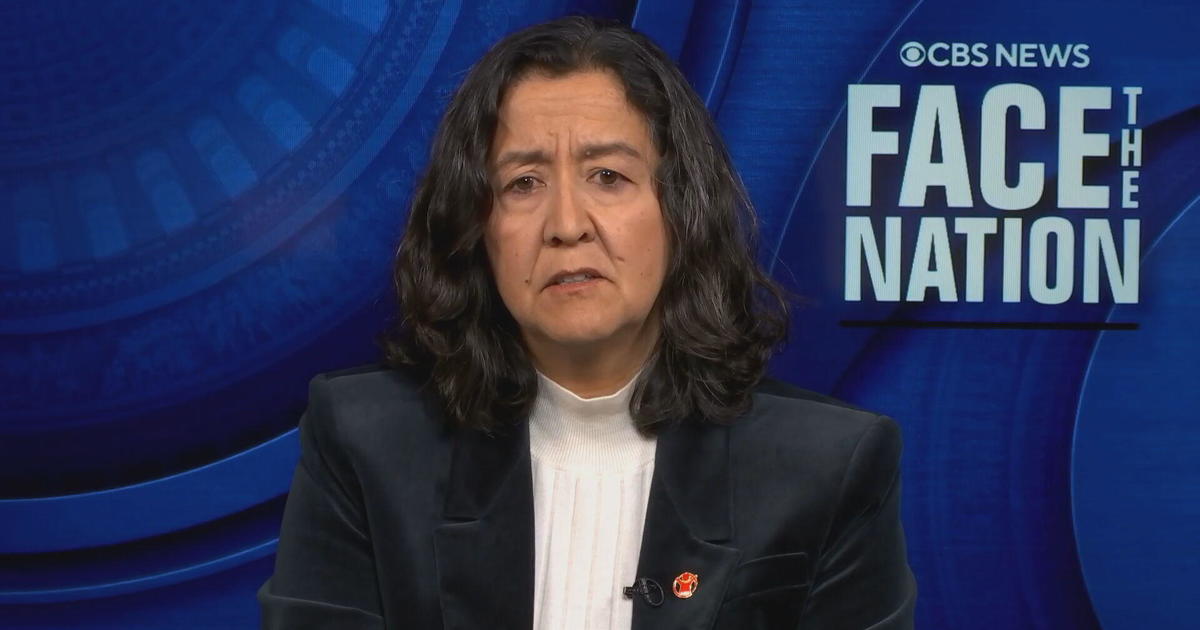
Transcript: Save the Children CEO Janti Soeripto on “Face the Nation,” Jan. 28, 2024

On January 28, 2024, “Face the Nation” aired an interview with Janti Soeripto, CEO of Save the Children. Below is a transcript of the conversation.
MARGARET BRENNAN: And we’re joined now by Save the Children’s CEO Janti Soeripto. I- I want to ask you about it because you were just back from the region you were looking into how much aid can get into Gaza right now to help the kids you are so concerned about? What did you learn?
JANTI SOERIPTO: Thank you, Margaret. I have recently returned from a trip lasting over 10 days in the region. I was able to make it to the border at Rafah crossing and saw the large number of trucks waiting in Al Arish to enter Gaza. Unfortunately, the process of receiving aid in Gaza is still severely insufficient. On a good day, only 130-150 trucks are able to enter, and during my visit, less than 100 were able to enter. Before October 7, about 500 trucks were entering Gaza daily with a mix of aid and commercial supplies. So the current number is far from enough, especially considering the increased needs in Gaza. Even when the trucks do arrive, the process is slow and complicated, with many offloading and unloading stops along the way. In addition, delivering aid to the last mile in Rafah, such as vaccinations for children, medical supplies to hospitals, and water to people, is still extremely challenging. There are about 1.5 million people stranded in Rafah, resulting in crowded streets and difficulty for trucks and vans to move. It is almost impossible to get supplies into the north of Gaza, where hundreds of thousands of people are still stranded.
Can you believe those photos of Rafah? The crowds there are unbelievable now. You’ve teamed up with other aid groups to state that this is unlike any war you’ve been a part of. What sets it apart?
JANTI SOERIPTO: It is truly a dire situation. People are trapped with no means of escape. We have experience dealing with crises in other parts of the world, such as Afghanistan, Sudan, and Ukraine. While those situations are also concerning, there is still an option for people to flee. However, in Gaza, the overcrowding and constant bombardment make it impossible for anyone to leave. This has greatly hindered our ability to provide humanitarian aid on a large scale. We are also extremely worried about the declining health conditions, as only a few hospitals are still functioning. This means that vulnerable children are at risk of serious illnesses becoming life-threatening due to lack of medical treatment.
MARGARET BRENNAN: The UN agency in Gaza said its services are collapsing as aid is now being paused because of this revelation by Israel that 12 people were tied to the attack on October 7. I know the Israeli government saying other aid organizations not tainted with terrorism can step in. You’re one of those aid organizations. Can you handle stepping in?
I am of the opinion that the idea of fully replacing UNRWA with the collective humanitarian sector is a form of magical thinking. It is not feasible for the sector to accomplish this task in a short period of time. It should also be noted that UNRWA has a significant staff presence of 13,000 in Gaza, while Save the Children only has 23.
MARGARET BRENNAN: Okay–
JANTI SOERIPTO: Currently in Gaza, and joined by numerous community volunteers.
Margaret Brennan: I must–
JANTI SOERIPTO: Many aid organizations are in the same spot–
Margaret Brennan: I apologize, but I have to interrupt as there is breaking news. We will return shortly.
Source: cbsnews.com